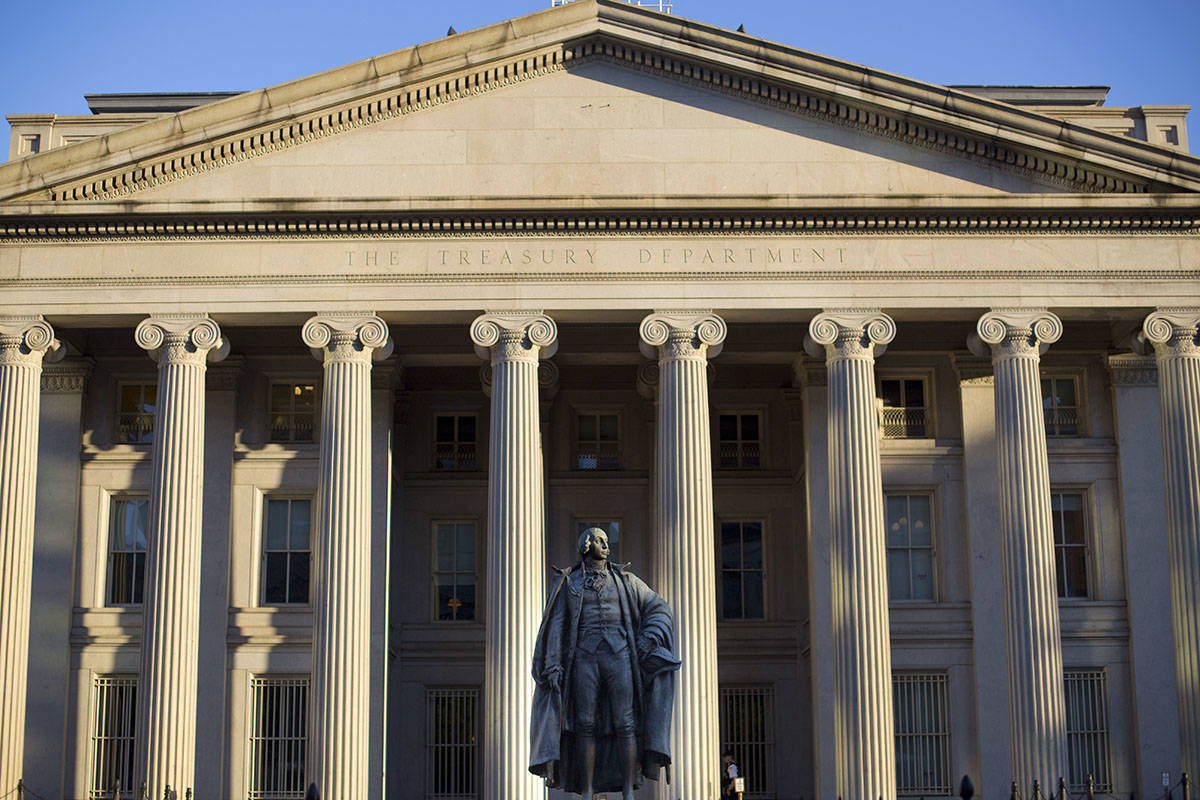Congress debates changes to paycheck protection legislation

WASHINGTON — A program to buffer small businesses battered by economic loss from the coronavirus outbreak ran out of federal funds Thursday as Republicans and Democrats continued to argue over the details of a new bill.
Members of both parties admitted the need for more funding but continued to clash over changes for loan eligibility and whether to tack on additional spending for states and cities.
The popular Paycheck Protection Program under the Small Business Administration was funded with $350 billion in the $2.2 trillion CARES Act passed by Congress and signed by President Donald Trump.
But those funds for loans to small businesses were officially depleted Thursday, and talks among congressional Republicans, Democrats and the White House remained stalled.
“This morning, the program ran out of money and shut down,” Senate Majority Leader Mitch McConnell, R-Ky., said. “Senate Democrats are still blocking funding.”
Sen. Catherine Cortez Masto, D-Nev., said that the Small Business Administration and Treasury Department have failed to make money available to all small businesses, particularly those that earn revenue from gaming machines or tables.
And Cortez Masto, like other Democrats, said any legislation should include more funding for states, cities and hospitals on the front lines of the coronavirus outbreak.
“People have to get off their political soap boxes and continue to negotiate,” Cortez Masto said in a telephone interview with the Review-Journal.
Last week Nevada Gov. Steve Sisolak joined a bipartisan group of governors seeking $500 billion from the federal government to offset costs associated with the coronavirus and prevent layoffs or loss of services.
Nevada mayors also have joined in a request for $250 billion to help with budget shortfalls caused by lack of tax revenues.
The entire Nevada congressional delegation has complained to the Treasury Department that many small businesses with revenue from gaming machines and tables were ineligible for the paycheck protection loans.
They have demanded changes that would allow access to money designed to keep people employed, particularly in a state like Nevada that has been hard hit by closures.
Even under revised SBA rules, some 265 small businesses in Nevada are ineligible for loans because they receive more than 50 percent of their revenue from gaming, Cortez Masto said.
Cortez Masto, Sen. Jacky Rosen, D-Nev., and Reps. Dina Titus, D-Nev., Mark Amodei, R-Nev., Steven Horsford, D-Nev., and Susie Lee, D-Nev., have called for legislation to address the problem.
Amodei, has urged the administration to follow congressional intent in disbursing the loans.
“Although we have been able to provide relief to thousands of small businesses in Nevada, there are still many that have been unable to receive these funds,” Horsford said.
House Speaker Nancy Pelosi, D-Calif., said any funding bill must include changes so that more small businesses can receive relief funds, and more funds must be made available to states and cities.
“In our next relief package, we must make sure those funds can be used to cover budget losses in large cities and small towns,” Titus said.
Lee has joined efforts to give $250 billion to cities with populations of under 500,000. Those smaller towns were left out of the last relief bill but face budget woes as they provide services without revenues with businesses closed.
Treasury Secretary Steven Mnuchin urged lawmakers to act quickly to provide more funding to PPP to prevent the program from lapsing for lack of funds.
House Minority Leader Kevin McCarthy, R-Calif., said no changes should be made to the Paycheck Protection Program. “That’s a program that’s working,” he said.
Contact Gary Martin at gmartin@reviewjournal.com or 202-662-7390. Follow @garymartindc on Twitter.